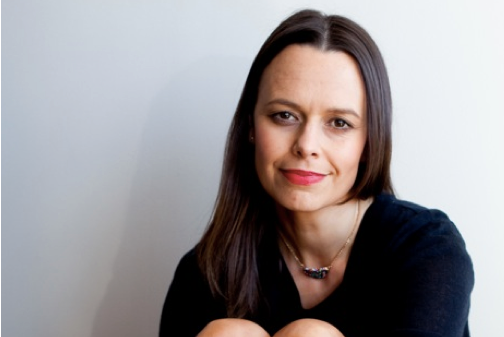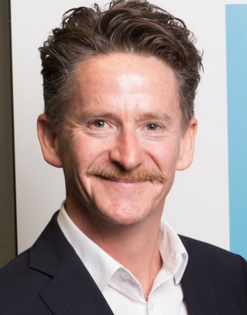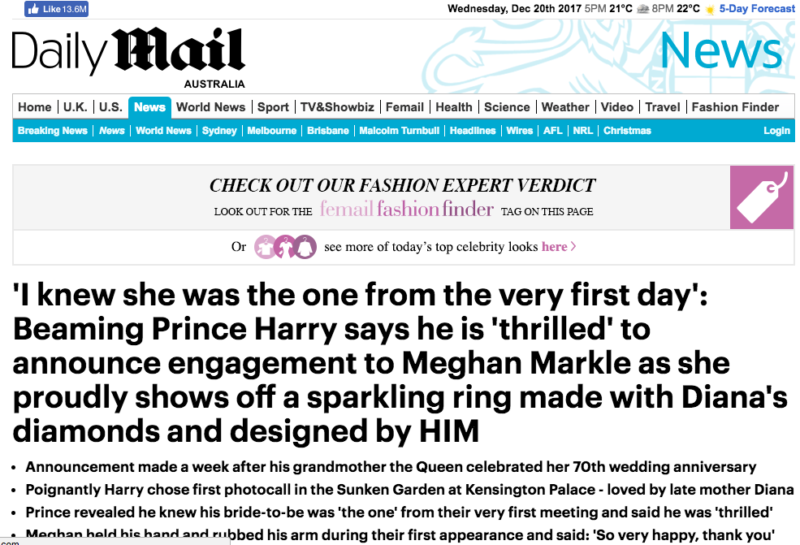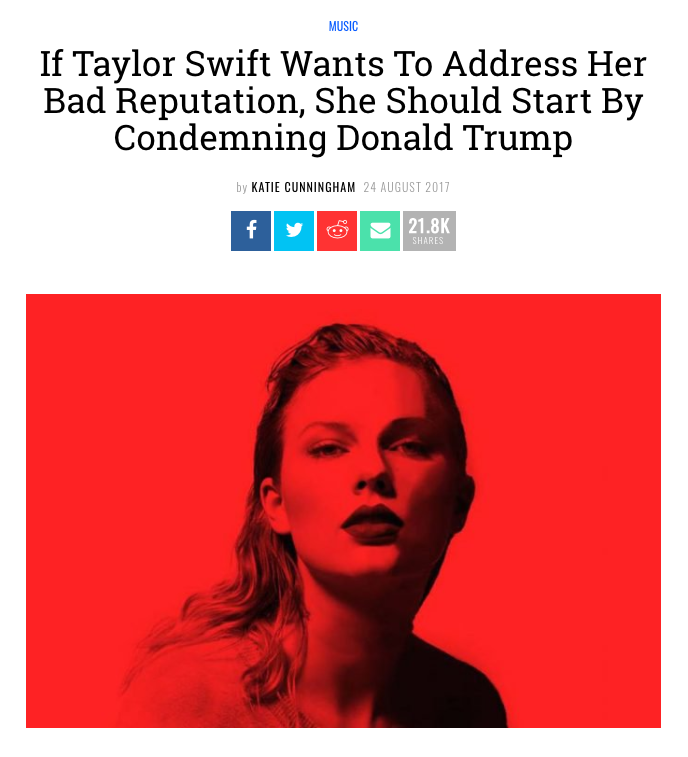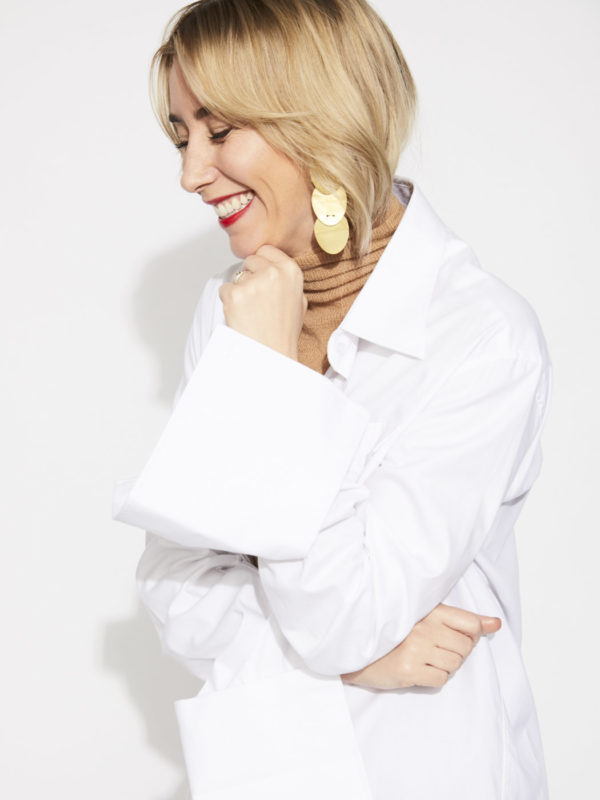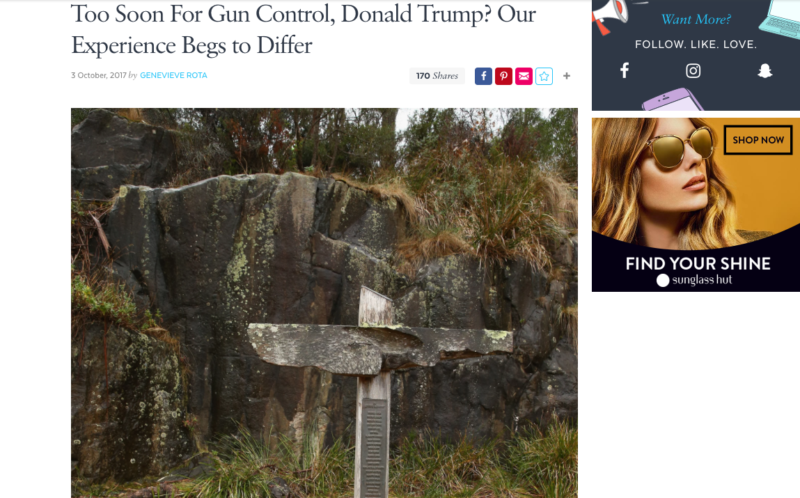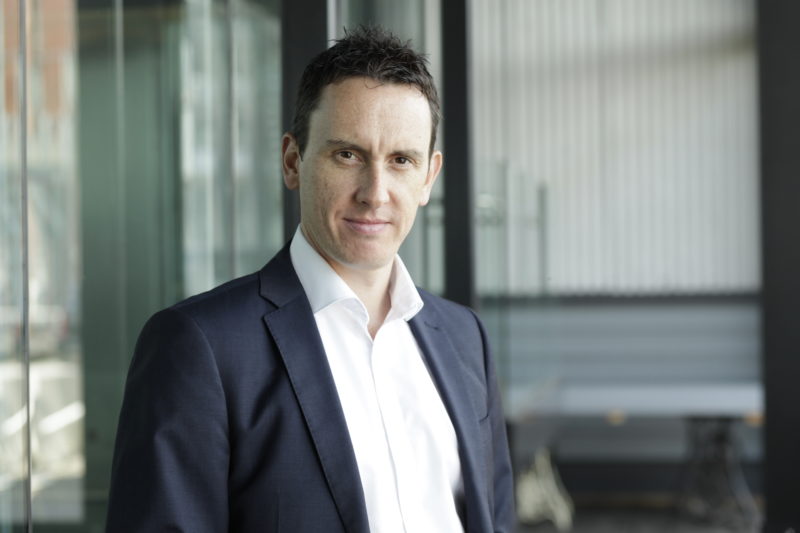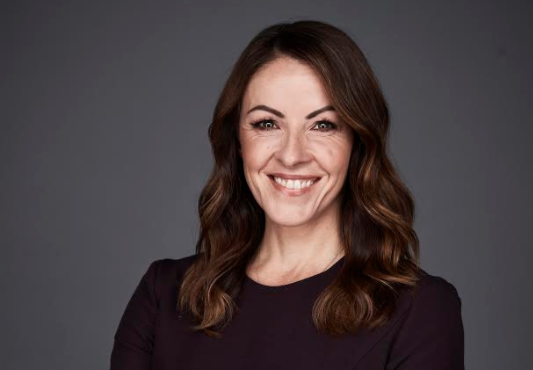What was the biggest story this year? Digital publishers reflect on the year just gone
As 2017 winds down, Mumbrella asked Australia’s biggest digital publishers to reflect on their biggest stories and predict what’s in store for 2018.
Chris Wirasinha, co-founder, Pedestrian.TV
What was your best story of the year and/or your most impactful
We broke the story that Triple J was holding internal discussions to move the date of the Hottest 100 from Australia Day. The initial story published in late 2016 and the ongoing coverage across the site through 2017 has played a part in them being forced to seriously address the issue publicly.
The day we published our first story, Triple J addressed it on-air in a 30 min special and set out an agenda on how they would consult with their listeners via an extensive survey.
The increased public profile around the issue helped lead to the bold decision that the station made when they chose to change the date. We’re big fans of Triple J and work closely with the station, so at times stories such as these can test your ability to maintain working relationships while still doing your job as a media organisation. Ultimately the decision to move the date was theirs and they made a brave choice by doing so which we overwhelmingly support.
What story are you most proud of?
I was most proud of the site’s re-brand to ped-Yes-trian during the postal vote and until SSM was legalised in parliament. This small gesture has delivered over 18 million views and made a strong statement of our commitment to the LGBTQI community.
Our ongoing coverage in support of same sex marriage saw everyone across Pedestrian come together and the result was truly inspiring. We covered the topic from a number of angles and uncovered original news stories and opinion pieces that then fuelled further conversation across social and the wider media landscape. We also came together with peers to collectively ‘go dark’ and turn off all ads across the site replacing them with drivers to ensure young Australians registered to vote with the AEC.
Aside from your publication, what was the best story this year?
The New York Times reporting on the Harvey Weinstein sexual assault allegations and the subsequent #metoo campaign is an example of media holding truth to power. It’s leading to a global culture shift that is supporting those who speak out.
Sexual assault victims for too long have been silenced, brushed aside or muzzled due to fear of not being taken seriously. Public coverage of these charges, especially against those who were previously seen as untouchable, will hopefully move us closer to a world where sexual assault is universally condemned and victims are lifted up and supported.
What has been the biggest industry change this year?
On the business side increased scrutiny and a shift away from programatic sold advertising inventory is starting to create a future where media can work with brands to do what they really excel at, which is tell stories.
What is your prediction for next year?
Apple looks past the clickbait and embraces Apple News as the hugely powerful force it can be – as the new front page for millions of Australians. Currently it seems to be falling in to the same trap that Facebook initially faced in their algorithm for news and media sites, where clicks were valued over engagement with the story on the other side.
Mia Freedman, founder, Mamamia
What was your best story of the year and/or your most impactful?
A video we made about the start of an abusive relationship went viral. It was a fresh way to educate women about the warning signs that can be easily missed at the start of a relationship.
What story are you most proud of?
Earlier this year we did a longform feature and podcast about young people diagnosed with terminal illnesses. One of the stories we told was of Emma Betts who was diagnosed with melanoma and used the last years of her life to raise money and awareness. We interviewed Emma in her final weeks and it was one of the most heartfelt and moving stories I’ve ever heard. It’s a subject not often discussed, that idea of facing death before you’ve had a chance to even find out who you are. I am proud that we could shine a light into that dark corner and tell the stories of some very brave people.
Aside from your publication, what was the best story this year?
It would have to be The New York Times and New Yorker coverage of Harvey Weinstein and the local version by the ABC and Fairfax with Don Burke.
In both instances, these stories have been attempted many times over the years and nobody could get them up until now. The work done by Ronan Farrow, Jodi Kantor and Megan Twohey in those original Weinstein investigations have literally changed the world.
Also a shoutout to Cat Person in The New Yorker. A piece of short fiction about and by a young woman going viral is pretty extraordinary.
What has been the biggest industry change this year?
The complete disruption of Nielson as a metric for digital reach. Nielsen still hasn’t worked out how to attribute social in-app referrals on a monthly level and yet again, media companies are finding measurement tools are lagging well behind the industry. Like so many publishers, more than 80% of our traffic comes from mobile, and in addition to being unable to measure content consumed in the Facebook app, Nielsen still can’t measure Apple News or podcasts.
So while our Nielson numbers are dropping, we’re experiencing record growth on a variety of platforms including Apple News and podcasts.
What is your prediction for next year?
Audiences – and women in particular – are on the move and agility is key to staying relevant. I remember when the only place people could consume a digital brand was via their dot com. Now 80+ percent of Mamamia’s reach happens outside the dot com. For example we’ve been in the top five Apple News publishers for all of 2017. The ecosystem will fragment even further next year and you have to be ready to diversify distribution and revenue streams.
Peter Holder, managing director, Daily Mail Australia
What was your best story of the year and/or your most impactful?
It’s hard to pick one, so if Mumbrella would indulge me just a bit… apart from our unrivalled Royal engagement content, there was the fall of Ben McCormack, anything to do with Sophie and Stu on The Bachelorette, our inside story on the under-age parents who hit the road after grabbing their new-born baby from hospital, our investigation into the prison attack on Daniel Morcombe’s killers, Paris Jackson’s weird Flemington appearance and, finally, who could forget Karl Stefanovic’s Daily Mail meltdown?
What story are you most proud of?
It’s grisly but the investigation into the prison attack on Daniel Morecombe’s killer, Brett Cowan. Reporters Hannah Moore and Belinda Cleary did a great job and it triggered a huge audience response.
Aside from your publication, what was the best story this year?
Certainly the biggest story of the year was what I collectively refer to as Men Behaving Badly. So many big names fell from grace: Harvey Weinstein, Matt Lauer, Louis CK, Kevin Spacey, Don Burke. Extraordinary to watch. And no doubt we haven’t seen the end of it.
What has been the biggest industry change this year?
CBS buying Network Ten – it will be fascinating to see how it unfolds over the next couple of years.
What is your prediction for next year?
The exposure of more Men Behaving Badly but, worryingly, the lust for more scalps – mixed with the star chamber that is social media – will see a few innocents tarred and feathered along the way.
Rob Stott, managing editor, consumer, Junkee Media
What was your best story of the year and/or your most impactful?
Katie Cunningham’s piece on Taylor Swift and Donald Trump did big business for us in Australia and around the world. It’s a really smart, thoughtful piece that hit a nerve with our audience and sits perfectly at the intersection of politics and pop culture, where Junkee thrives. I think it’s a great example of the best content we can produce.
As an editor, what story are you most proud of?
As Australia geared up for the postal survey on marriage equality, we had a young man approach us asking to write anonymously about what it’s like to be in the closet while the nation debates your rights. It was a funny, touching, heartfelt piece that really illustrated the personal cost of the debate.
Thanks to the positive response the piece received, the young man felt comfortable coming out to his family and friends. He wrote a second piece for us about the process he’d been through and it was just as lovely as the first. I love that we’re able to give young writers a platform, and Ben used his so perfectly.
Aside from your publication, what was the best story this year?
I really enjoyed everything Lane Sainty produced for BuzzFeed throughout the postal survey. I was lucky enough to work with Lane when I was at BuzzFeed and she’s a true star. Throughout the campaign, she was the most informed on the moment-by-moment developments, but she’s also able to write with incredible humanity when required.
I don’t think anyone in the country did it better than she did.
What has been the biggest industry change this year?
That’s a tough one. I think there’s a growing realisation that companies like Google and Facebook can be our best friends, but also pose a huge threat to the way we work. They control our fates in so many ways and a lot of media companies are only just beginning to realise that we need to diversify where our traffic comes from if we’re going to survive in the long term.
What is your prediction for next year?
Similar to the previous question. More media companies are going to look for different ways to bring in new traffic. That has the potential to be really exciting and lead to some big innovations, but it’s a fine line to walk in an industry where every resource incredibly important.
Alison Rice, group publisher, Allure Media
What was your best story of the year and/or your most impactful?
In terms of where we’ve taken POPSUGAR as a brand in 2017, our senior news and entertainment editor’s short but sharp and timely piece on what Trump could learn from John Howard following the Las Vegas mass shooting was our most impactful story. HRC’s loss sparked a renewed sense of activism in young women, and as a global brand, this matters a great deal to us. We’ve spent the year pushing hard into gender-quality causes and encouraging our audience to participate in public leadership, so when I think about our most impactful stories, traffic has absolutely nothing to do with it. We’re organising our audience and its through that lens I measure impact.
What story are you most proud of?
Our #SendYesHome SSM campaign on POPSUGAR, which was dedicated to the half a million Australians living or travelling overseas to ensure they were informed on how to vote. Again it came back to being part of a global brand. Our partners reach 30 million uniques a month in the US alone, so we challenged ourselves to make better use of that reach by thinking globally and acting locally.
How many of those 30 million are Australian, and can we get POPSUGAR’s global publishing partners to help us share the campaign as well? We solved a problem, and brainstorming it was one of my favourite mornings of the year – watching our senior editorial team rally. We conceived the entire campaign on HipChat as I was driving to work, and we had the launch story written, marketing plan down and custom platform designs out by lunchtime. I still find that agility so energising. The thing I am most proud of though is it had nothing to do with traffic. Every time we pushed our audience to a link it was to the ABS to vote. We wanted to make a difference and we meant it.
Aside from your publication, what was the best story this year?
I don’t think any Australian story could beat Jodi Kantor and Megan Twohey’s explosive expose for The New York Times. Beyond the fact Hollywood will never be the same – in the very best way – alongside the social impact and #MeToo, their story gave us permission to continue holding space for victims of sexual assault. There’s no time limit on it. A small but I hope meaningful example is the entry point it gave me as a young(ish!) woman in a leadership, to express MyDomaine’s commitment to helping our audience reclaim their safety at work. It is a gift and we have to do something with it. We have to keep the dialogue open.
What has been the biggest industry change this year?
Everyone finally woke up to the duopoly, but that’s unfortunately meant it’s been a bit of a race to the bottom here in Australia. True native never got its shot which I’ve found pretty disappointing, and some publishers have spent the year in a battle to guarantee the most PVs. Pumping content through third party distribution platforms or drastically boosting has become the norm. It’s a false economy. Publishers need to start valuing brand IP.
What is your prediction for next year?
It is going to take a bit longer than most of us want it to, but brands will eventually return to buying brands. That will in turn mean anyone working inside a publishing house will need to be fluent in content and brand objectives – it will be about brand partnerships that service and delight our audiences. It’s for these reasons we’re focused on aggregating rich audience segments and reaching them with the right content, wherever they are.
Simon King, network editor, nine.com.au
What was your best story of the year and/or your most impactful?
The heartbreaking series about Cassidy Trevan, a 15-year-old Victorian schoolgirl who committed suicide after a group of schoolyard bullies orchestrated her gang rape. It was a body of work which saw nine.com.au’s Emily McPherson recognised with multiple journalism awards.
In a string of exclusives Emily revealed the full circumstances that led to Cassidy’s tragic death, she built a relationship with her mother Linda Trevan, explored the fatal effects of bullying and ultimately raised the essential question of justice for Cassidy after revealing police had never actually questioned the alleged perpetrators.
This piece was not only a tremendous piece of investigative journalism which involved building relationships in the most tragic of situations, but following nine.com.au’s coverage Linda was inundated with thousands of messages of support from across the world and is now an online anti-bullying advocate. She has now also met with officials from Victoria’s Education Department about addressing bullying in schools and with detectives to discuss reopening Cassidy’s case
What story are you most proud of?
The Manchester Ariana Grande terror attack stands out as an example of what’s possible if nine.com.au throws its full resources at a breaking news event.
Alongside our local team and 9News, our London and LA correspondents ensured, around-the-clock coverage from the moment the explosion went off and, hand in hand with our live streams, delivered immediate, in-depth, news and over 50 videos covering everything from the initial bomb blast, to the victims, the police investigation, the arrest and the political reaction home and abroad. For nine.com.au the award-nominated coverage set a new standard.
Aside from your publication, what was the best story this year?
Ridiculous politics of a $130-plus million non-binding plebiscite aside, the same sex marriage result is impossible to go past as the best story of the year. But from the moment the New York Times broke the Harvey Weinstein scandal in October triggering the #MeToo campaign there has been a wind of change blowing through not just ours, but many other industries. We certainly haven’t heard the last of it locally, and hopefully the bravery shown will result in a tremendously positive watershed moment when it comes to sexual harassment.
What has been the biggest industry change this year?
We’ll see what comes of the media reforms and who will folds into who next year, but this year we’ve seen local media pushback against the publishing ad-snorting juggernauts like Facebook and Google. Mastheads have pulled out of Facebook Instant Articles and Apple News – acknowledging these social giants aren’t here to solve our problems and as an industry we’re starting to focus on our own ways to better monetise content and create reach. A prime example, was Fairfax Media, News Corp Australia and Nine joining forces to look at creating an anonymised digital identity co-operative with the aim of better competing with Google for ad dollars.
What is your prediction for next year?
No crystal ball needed for this, but Turnbull’s in trouble. Despite finishing the year on a high courtesy of the SSM result and the two by-elections he will continue to be torn between satisfying the hard-right of his party and his own values and the public can see the tears appearing personally and the resulting inaction nationally. And while he’s on the way out, Google isn’t. The international internet ad-revenue sucking machine is about to turn on ad blockers on Chrome which for all who rely on pre-roll ads to fund the quality journalism discussed on this page is another blow courtesy of the internet’s Big Brother.
Simon Wheeler, director of content, Yahoo7
What was your best story of the year and/or your most impactful?
One of our most impactful stories of the year was our coverage of the tragic events in May when 22 people were killed and hundreds injured in a suicide terror attack at an Ariana Grande concert in Manchester, England. Of course, the world’s media jumped on this breaking news event as soon as it became clear what had happened, but I think Yahoo7’s in-depth coverage stood out from our competitors’.
Not only were we quick to tell our readers of the incident, but we kept them updated as the horrific events unfolded. Using our highly-engaged social channels and websites we were able to update our readers in real-time and publish different angles to give them deeper context of what was going on. Eyewitness accounts, heroism amid the panic and the way the city came together were all laid out.
The benefits of having a wide-reaching network covering multiple areas of interest also came to the fore as our entertainment team was able to report the celebrity angles – remembering this happened at a pop concert – and our sport department relayed the story of how the sport-mad city’s football teams were able to honour the victims. Collectively, this was 360 coverage that proved our ability to react and then develop a major breaking news story, a key skill in digital journalism.
What story are you most proud of?
I am proud of the way we have built our lifestyle vertical Be to be one of the country’s leading destinations in just over a year. That success has been driven by the quality, engaging and sharable content the team publishes every single day. Be has cemented itself as the home of real-life stories and one that stands out is the story of brave Evie Weir, the little girl who has fought cancer four times before her seventh birthday. Her mother Sarah, from Penrith, NSW, shared her daughter’s inspiring story, giving hope to other cancer sufferers – young and old – and raising money for Childhood Cancer Awareness month in September.
These kind of confronting but heartfelt stories have set Be apart this year and provide a new content offering to Yahoo7 readers. On a lighter note, Prince Harry’s (accidental) visit to Be’s offices, when he boarded a boat near our waterfront offices for a cruise on Sydney Harbour, was a highlight for the team, enabling us to publish exclusive videos, stories and social posts that didn’t exactly follow royal protocol.
Aside from your publication, what was the best story this year?
Who would have thought The New York’s Times’ expose on Harvey Weinstein’s sexual harassment dating back decades would have been just the tip of the iceberg. This story, documenting the film mogul’s sordid and predatory behaviour, truly sent shockwaves around the world, engulfing numerous industries, leading all the way to the White House.
And Australia has not been immune. The Sydney Morning Herald/ ABC investigation into the abusive and offensive antics of groping green thumb Don Burke prompted scores of alleged victims to come forward, shining a light on a dark era of Australian TV and celebrity. You can’t help but feel that the global awakening to the widespread nature of sexual harassment in the workplace, no matter what the industry, will continue for some time yet.
What has been the biggest industry change this year?
From the continuation of the shift to mobile and the consumption of video, to new ways of telling stories thanks to the development of AR/ VR and voice-activated products, nothing has stayed the same in 2017. One of the biggest shifts is publishers’ collective awakening to the challenges of working with and depending upon the duopoly of Google and Facebook.
From a content point of view, most publishers have realised that depending on third-party platforms to grow audiences that can be monetised is a finite and risky strategy. The challenge for us all is how do we address the balance of continuing to use social media channels to take content to the readers (instead of expecting them to come to us) and creating new methods of distribution to a generation which has grown up with a phone in his or her pocket and consumes content, especially video, in a multitude of ways.
What is your prediction for next year?
Change, change and more change. While quality content will continue to be the deciding factor in whether someone consumes your video, story or podcast, the user or reader will continue to demand that publishers find new ways of delivering that content in a format they want and when they want it.
Have publishers really figured out how to deal with this opportunity or are we just playing around the edges by repackaging what we’ve always done and hope it appears in the modern consumer’s news feed?
Publishers, especially local ones, must fully embrace new video formats and identify what platforms will help them grow audiences now and into the future.
Kerri Elstub, network editor, 9Honey
What was your best story of the year and/or your most impactful?
Without a doubt, our best story was “An open letter to the women who mum shamed me”. This piece our Mums Editor Kelly Baker was our most read story of the year. It was gut wrenchingly honest and from the heart. Our readers clearly related and came for it in droves.
And beyond the wide reach it had, it’s a beautiful piece of writing.
What story are you most proud of?
There are so many I could put into this category, but I’d have to say it’s journalist Jo Abi talking about her own struggles with mental health. Not many people would come forward and share their pain on such a public stage to help others. But that’s the kind of writer, person and mum that Jo Abi is. It should be recommended reading for everyone.
What has been the biggest industry change this year?
From an industry perspective, you can’t go past the #metoo campaign. It represents a significant shift in the way women are heard and treated. It’s distressing to see so many women come forward with their stories of being used and abused, but the #metoo campaign has ignited a worldwide movement that will only keep growing.
What is your prediction for next year?
It will be all about the royal family in 2018. A third baby for the Duke and Duchess of Cambridge in April, followed by the wedding of the year between Prince Harry and Ms Meghan Markle on May 19. The monarchy will be more popular than ever.
Kate de Brito, editor-in-chief, news.com.au
What was your best story of the year and/or your most impactful?
I’d prefer to tell you what our readers thought was the best story of the year. It’s a very legacy view to think we are the ones who decide what is important. This year our biggest stories were about the Ariana Grande terror attack, the Bourke St rampage and the London Bridge attack. The McGregor v Mayweather and the Pacquio v Horn fights also drove huge reader traffic and engagement on news.com.au.
What story are you most proud of?
In November our crime reporter Andrew Koubaridis published the story behind a dramatic photo of a little boy sitting in the gutter outside a suburban home wearing a forensics suit and talking to a police detective. It was an exclusive interview with the boy’s grandmother and it gave heartbreaking details of the boy’s experiences on the day he woke to find his parents dead, stabbed to death by the mum’s ex-partner. Andrew spent months talking to the boy’s grandmother until she was ready to speak publicly. The result was a heartbreaking story told with sensitivity and emotion.
Emma Reynold’s workplace health series which ran for a week in November showed the crisis occurring in our workplaces with 20 per cent of suicides now linked to work; and Megan Palin’s exclusive series on bullying in the AFP exposed a shocking workplace culture.
We were also very proud of our extensive same-sex marriage coverage in the months leading up to the historic vote.
Aside from your publication, what was the best story this year?
Even in the year of a US president most of the world still cannot believe is President, and rising international tensions with North Korea, it is difficult to go past the impact the Harvey Weinstein scandal has had and will continue to have on women’s rights and the accountability of powerful men, giving rise to the #MeToo movement and leading to the behaviour of Kevin Spacey and Don Burke also being exposed.
What has been the biggest industry change this year?
Fake news has had a significant impact on the media this year. It’s not so much that we’ve had to change our practices – good reporting has always required multiple checks to verify a story – but it’s made readers more sceptical . And unfortunately the phrase has also been hijacked to work against credible reporting so when politicians or those under scrutiny don’t like what’s being written about them they have a fallback: “It’s fake news!”
What can we expect from 2018? Do you have any news predictions for the New Year?
You don’t need to be a clairvoyant to see it’s only a matter of time before the situation in North Korea graduates to something far more serious. Oh, and next year’s Married at First Sight looks like it’s going to be a cracker.
To find out what publishers on the print side of the publishing pond had to say, click here.



